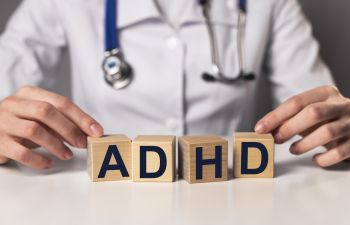ADHD Medication and Risk-Taking Behavior: Addressing Impulsivity and Safety Concerns

Impulsivity, inattention, and hyperactivity are the hallmarks of Attention Deficit Hyperactivity Disorder (ADHD), which can seriously impair a person’s capacity to make responsible and safe decisions. One of the main issues with ADHD is the tendency to engage in risky actions because of issues controlling impulses and thinking through implications. This essay will examine the connection between risk-taking behavior and ADHD medicine, emphasizing the function of medication in treating impulsivity and safety issues in ADHD patients.
Recognizing Risk-Taking in ADHD Patients
Impulsivity is a common trait in people with ADHD, and it can show up as a variety of risk-taking behaviors, such as:
Impulsive Decision-Making:
People with ADHD may find it difficult to consider the possible outcomes of their actions before taking them, which can result in impulsive decisions being made in a variety of contexts, including money matters, social situations, and academic matters.
Sensation-Seeking Behaviors:
In an effort to escape boredom or restlessness, some people with ADHD may partake in sensation-seeking behaviors, such as drug abuse, reckless driving, or thrill-seeking pursuits.
Thrill-Seeking Activities: People with ADHD may seek out high-risk activities or adrenaline-pumping experiences due to their desire for constant stimulation and novelty, frequently without thinking about the possible risks.
The Function of ADHD Drugs
Medication for ADHD, especially stimulant drugs like amphetamines and methylphenidate, targets the neurobiological mechanisms underlying the disorder, such as deficiencies in dopamine and norepinephrine neurotransmission. Drugs that increase neurotransmitter activity and levels in the brain can help treat impulsivity and enhance self-regulation, which lowers the chance of participating in risky behaviors.
Advantages of ADHD Medication’s Effect on Lowering Risk-Taking
Enhanced Impulse Control: Improving impulse control allows people to think things through before acting on their impulsive impulses, which is one of the main advantages of taking ADHD medication. Medication can help people make more cautious and considered decisions, which can result in safer and more responsible behavior by lowering impulsivity.
Enhanced Attention and concentration:
Medication assists people with ADHD in keeping their concentration and attention on pertinent information, which facilitates the identification of possible dangers and outcomes in a particular scenario. People with stronger attentional control are better able to balance the benefits and drawbacks of many options and make well-informed decisions.
Diminished Hyperactivity:
Hyperactivity raises the chance of acting impulsively or recklessly, which can lead to risk-taking behavior. ADHD medication can help reduce hyperactivity so that people can approach circumstances more composedly and with self-control. This lowers the likelihood of mishaps or injury.
Taking Care of Safety Issues
Even if taking ADHD medication can help reduce risk-taking behavior, there are certain crucial safety issues that need to be taken into account:
Driving Safety:
Due to their difficulties focusing and controlling their impulses, people with ADHD may be more likely to be involved in accidents and traffic infractions. Healthcare professionals should evaluate each patient’s driving prowess and offer advice on safe driving techniques, such as using ADHD medication to enhance focus and lessen impulsivity when driving.
Substance addiction:
By reducing impulsivity and enhancing self-control, ADHD medications may lower the risk of substance addiction. Healthcare professionals should keep an eye out for indications of substance abuse and offer the proper support and interventions to individuals with ADHD, as they may still be susceptible to substance use disorders.
Accident Prevention:
Because of their impulsivity, distractibility, and risk-taking tendencies, people with ADHD may be more likely to be involved in accidents and sustain injuries. Healthcare professionals should inform patients and their families about safe practices, accident prevention techniques, and the benefits of using ADHD medication to reduce impulsivity and increase safety.
Teamwork in the Treatment Process
A collaborative strategy involving healthcare practitioners, individuals with ADHD, their families, and other relevant stakeholders is necessary to address risk-taking behavior in people with ADHD. Important elements of this strategy include:
Thorough Evaluation:
Medical professionals should carry out a thorough evaluation of patients with ADHD in order to identify risk factors, areas of strength, and difficulties pertaining to impulsivity and risk-taking behavior.
Customized Treatment Programs:
Each person with ADHD has different requirements and preferences, thus treatment programs should be tailored to meet those needs. This could involve counseling, psychoeducation, medication management, and supportive treatments that are aimed at particular problem areas.
Frequent observation and follow-up:
In order to evaluate therapy response, keep an eye out for adverse effects, and modify the course of treatment as necessary, ongoing monitoring and follow-up are crucial. Maintaining open lines of communication between patients, their families, and healthcare professionals is essential to maximizing treatment results and resolving any issues that may come up.
In summary
When it comes to managing impulsivity and lowering risk-taking behavior in people with ADHD, ADHD medication is essential. Medication can assist people in making safer and more responsible decisions by promoting impulse control, attentiveness, and self-regulation, which will ultimately improve their general well-being and quality of life. But it’s crucial to understand that medicine is only one part of a complete treatment plan for ADHD, and that managing risk-taking behavior calls for a multimodal strategy that involves cooperation, education, and support from medical professionals as well as from families and other stakeholders. People with ADHD can learn to control their impulsivity and face life’s obstacles more confidently and safely with the correct set of interventions and support.




